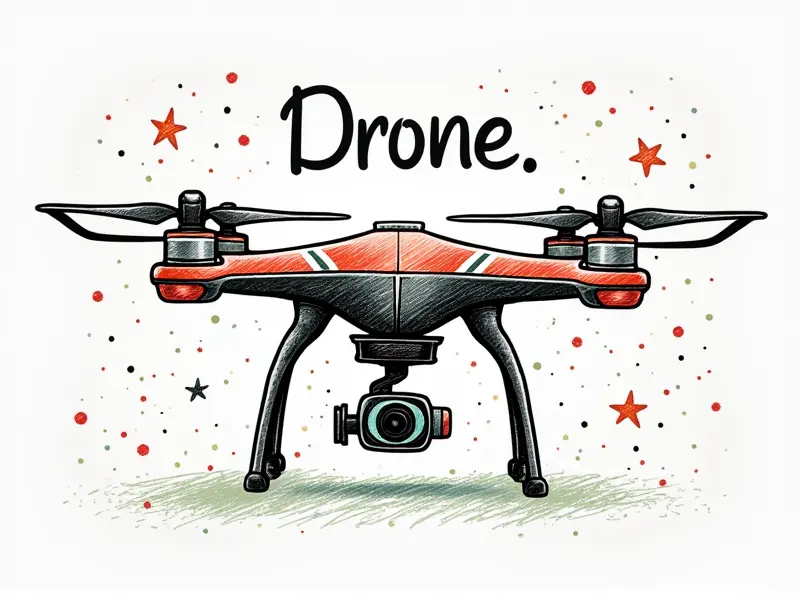Can kids fly FPVs?

Are Kids Ready to Fly FPV Drones?
Flying FPV (First Person View) drones can be an exhilarating experience, but is it suitable for kids? The readiness of children to fly FPV drones depends on various factors such as age, maturity level, and their understanding of safety protocols. While some kids may demonstrate the necessary skills early on, others might need more time to develop the required coordination and comprehension.
Is FPV Flying Suitable for Youngsters?
Flying FPVs can be an excellent way to introduce children to technology and aviation principles. However, it's crucial to assess whether they are mentally and physically prepared for this activity. Kids who show interest in drones and have a basic understanding of flight mechanics might benefit from learning FPV flying. It’s essential to ensure that the child is old enough to handle the responsibility and has the patience to learn.
Age Limits for Flying FPV Drones
The age at which kids can start flying FPVs varies widely depending on their maturity, interest, and physical capabilities. Most manufacturers recommend a minimum age of 14 years due to safety concerns and legal restrictions. However, some parents might consider starting earlier if the child shows exceptional aptitude and is well-versed in safety guidelines.
Safety Tips for Kid-Friendly FPV Flying
- Supervision: Always have an adult present to supervise and assist during the initial learning stages.
- Pilot Training: Provide comprehensive training on drone operation, flight principles, and safety measures.
- Safety Gear: Ensure that kids wear protective gear such as helmets with FPV goggles, gloves, and knee pads to prevent injuries.
- Flight Zones: Choose open areas away from people, obstacles, and restricted airspace for safe flying.
Legal Considerations for Youth FPV Pilots
Before allowing kids to fly FPVs, it’s crucial to understand the legal framework. Check local regulations regarding drone usage in your area, including restrictions on height, distance from buildings and people, and no-fly zones such as airports and military installations.
Benefits of Introducing Kids to FPVs
Flying FPVs can offer numerous benefits for children:
- Cognitive Development: Enhances problem-solving skills, hand-eye coordination, and spatial awareness.
- Skill Enhancement: Teaches valuable technical skills such as programming, electronics, and troubleshooting.
- STEM Education: Provides a practical application of STEM (Science, Technology, Engineering, Mathematics) concepts.
Best FPV Drones for Young Enthusiasts
Selecting the right drone is crucial to ensure a positive learning experience. Opt for beginner-friendly models with features like:
- Ease of Use: Simple controls and user-friendly interfaces.
- Durability: Robust construction to withstand crashes and wear.
- Safety Features: Built-in failsafes like automatic return-to-home and obstacle detection.
Are Kids Ready for FPV Racing?
FPV racing can be highly thrilling but also challenging. Assess whether the child is prepared both mentally and physically to handle high-speed flying, quick decision-making, and competitive pressure.
Is FPV Racing Safe for Kids?
Safety remains a paramount concern in FPV racing. Ensure that kids are well-versed in safety protocols, wear appropriate protective gear, and understand the risks involved before participating in races.
Challenges of Kids in FPV Racing
- Physical Stamina: Maintaining focus during high-intensity races can be demanding for young pilots.
- Tech Savvy: Understanding complex technical aspects like radio frequencies and flight controllers is essential.
- Mental Focus: Concentrating on the FPV feed while managing speed, altitude, and obstacles requires significant mental effort.
Teaching Kids to Fly FPV: A Guide
Taking kids through the learning process step-by-step can help them develop confidence and competence in flying FPVs:
- Start with Basics: Introduce fundamental concepts like drone anatomy, flight controls, and safety procedures.
- Practice Makes Perfect: Encourage regular practice sessions to build proficiency gradually.
- Engage in Community: Join local FPV groups or online forums where kids can learn from experienced pilots and share experiences.
Conclusion
Flying FPVs can be an enriching experience for children, offering a blend of excitement and educational value. By ensuring they are mentally prepared, physically capable, and well-versed in safety measures, parents can pave the way for kids to enjoy this thrilling hobby responsibly.

